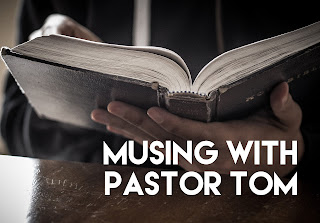Dear Friends,
"The first responsibility of a leader is
to define reality. The last is to say thank you. In between, the leader is a
servant." These wise words came from Max DePree, the former
chairman and CEO of Herman Miller, Inc, the furniture maker that was once named
one of Fortune magazine's 10 best managed and most innovative companies.
Today I still member De Pree's book The Art of Leadership which
I read over two decades ago while on a cruise with my wife and family. Few
books on leadership have impacted me more than this one. The fact
that I still remember the time I read it after so many years is a
testimony to the impact it had on me.
One of the key aspects of De Pree's leadership involved a
principle he learned from his father. It was called 'the rule of abandoning
oneself to the strengths of others'. His father was always open to the ideas
and suggestions of others. He cultivated the kind of relationships with his
employees that made them feel that their input was not only welcome but
encouraged. He knew that he could learn from the experts, but he was far more
interested in learning from the rank and file. They were the ones who knew the
company best, and who were in the best position to recommend the kind of
suggestions that would strengthen the company. He introduced the Scanlon Plan,
a plan by which workers made suggestions to management for ways to improve such
things as customer service, quality, and productivity. In 1987-88
Herman Miller employees made suggestions that led to cost savings of some $12
million dollars.
Regardless of your position, I believe this principle of
'abandoning oneself to the strengths of
others' has significant implications for those in any form
of leadership. The best leaders, administrators, coaches, teachers, pastors,
and yes, even parents, are generally the ones that are open to the possibility
that they might learn something from the suggestions of others. They are not so
arrogant to think that they have all the answers and can never learn from those
with whom they work.
Some of the most valuable lessons I have learned as a
parent, coach, teacher and pastor have come from those times when I was willing
to 'abandon myself to the strengths of others.' Such learning can provide
a valuable dimension to one's growth. If we think we know it all, and that those
we work with can't teach us anything, we are indeed foolish.
The legendary basketball coach John Wooden was fond of saying,
"It's what you learn after you know it all that counts."
A number of years ago R. C. Sproul, who at the time was the
resident scholar at Pittsburgh Seminary, and one of the most creative and
intellectual scholars of our time, was giving a heavy lecture to a group of his
students. One of them raised his hand and asked a very complicated question.
Dr. Sproul smiled and said, "The answer to that is very simple, I don't
know."
Those who are willing to confess that they don't know it all,
are the ones who are most teachable. God is not looking for those who profess
to know it all. He is looking for those who are willing to be quiet and ready
to listen and learn from others.
And oh yes, don't forget, "The wise are glad to be
instructed, but babbling fools fall flat on their faces." (Proverbs 10:6,
The Living Bible).
Yours in faith and friendship,













